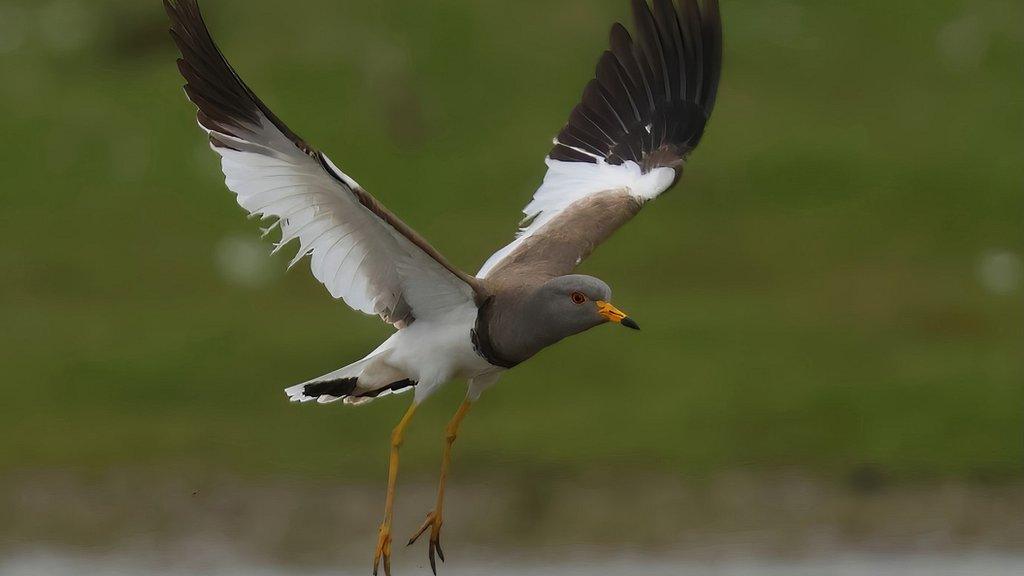Birdwatchers joy as rare tern and puffin spotted
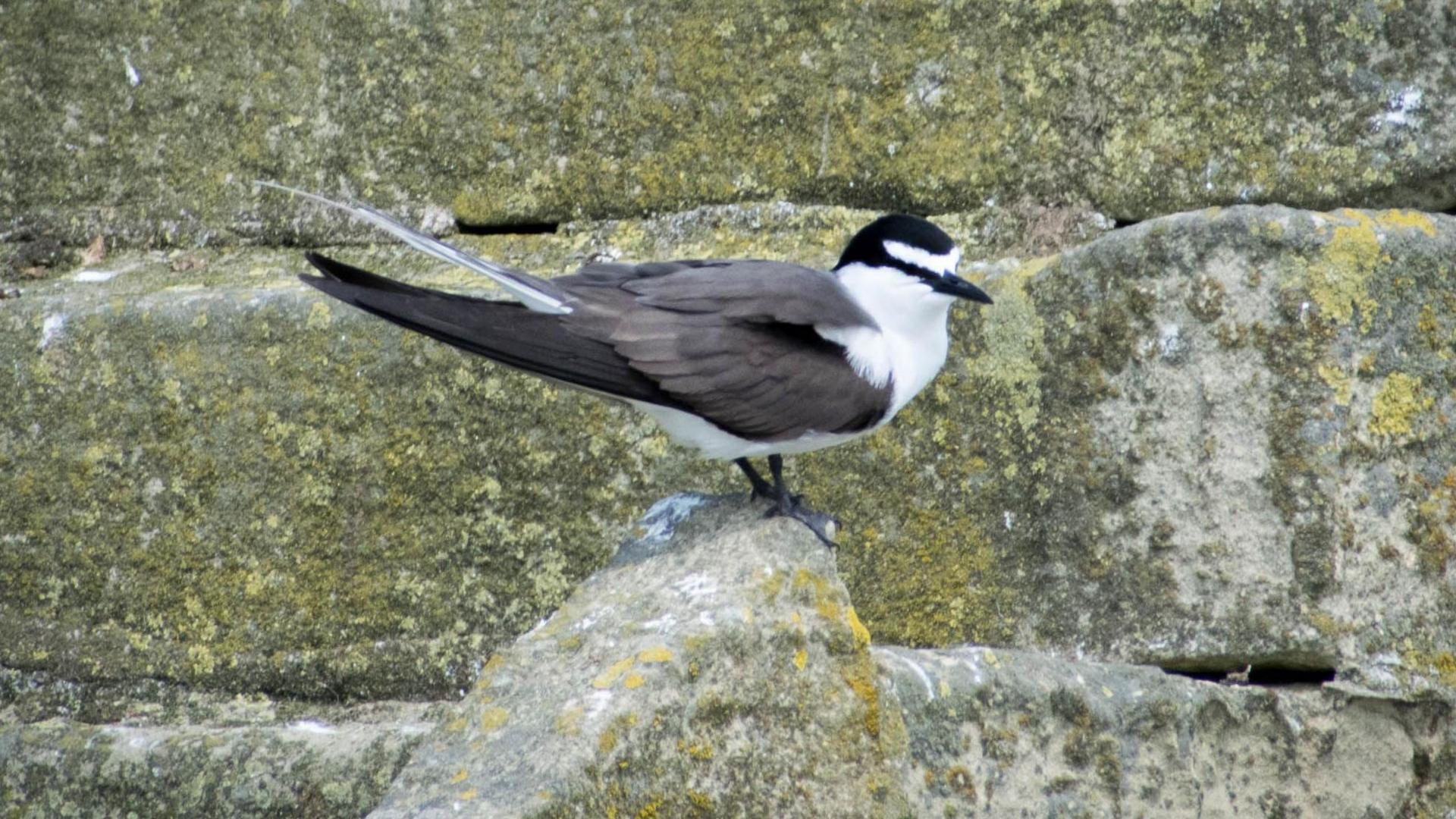
The British Trust for Ornithology says there are very few previously recorded visits of a bridled tern to Britain
- Published
An "incredibly rare" bridled tern and "golden puffin" have been spotted within days of each other at a North East island.
Both sightings were on or near Coquet island off the Northumberland coast, where people are banned from treading.
It is thought the bridled tern, which is normally found in warm tropical waters, was blown off course.
Holly Pickett, one of the wardens of the island, said: "It's been an exciting few days with birdwatchers coming from all over the country."
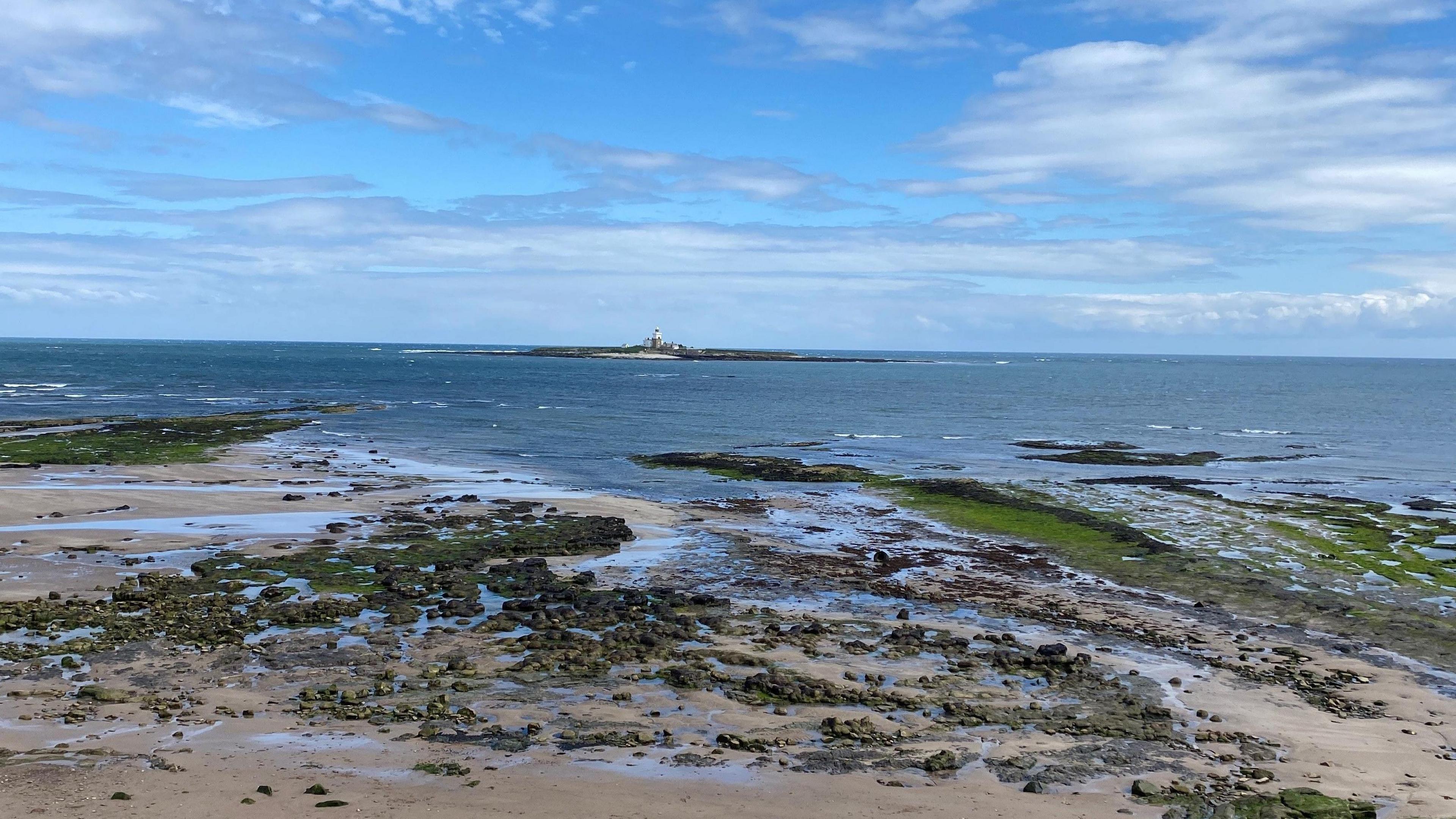
Just a mile off the Northumberland coast, Coquet Island is home to 40,000 breeding seabirds
She said: "Probably of the two sightings, the bridled tern is the one which has most excited them.
"It is illegal to land on the island without a special licence because of the importance of the seabirds nesting there, but we're happy for people to watch from boats and the shore."
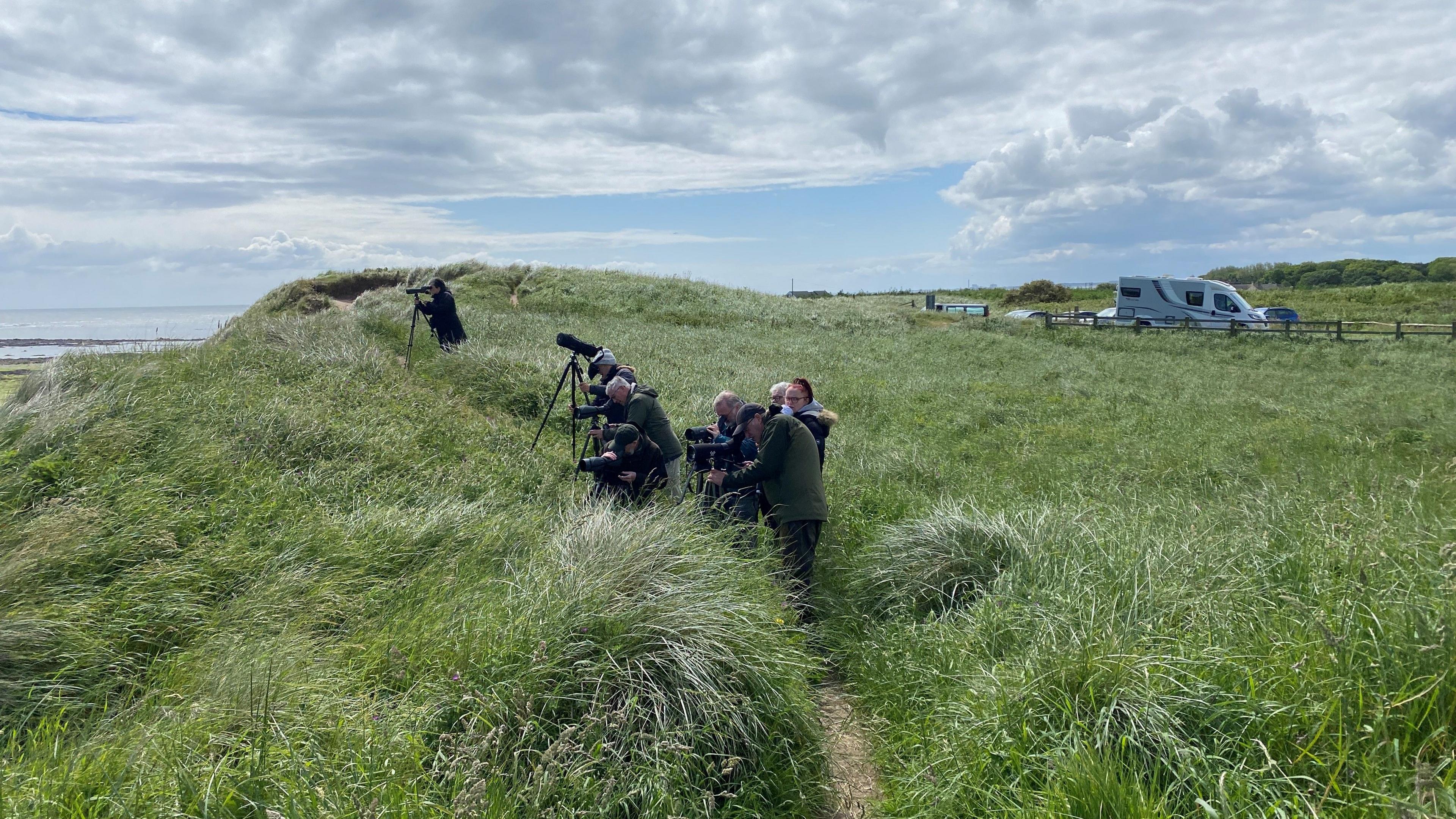
Stormy weather meant birdwatchers had to stay on the mainland
The rare puffin was photographed by Steven Banks from Puffin Cruises who said it has been "quite a week".
"First we had the incredibly rare bridled tern, then a couple of days ago we saw an unusual puffin, it has white and brown feathers but when the light reflects on it they look golden," he said.
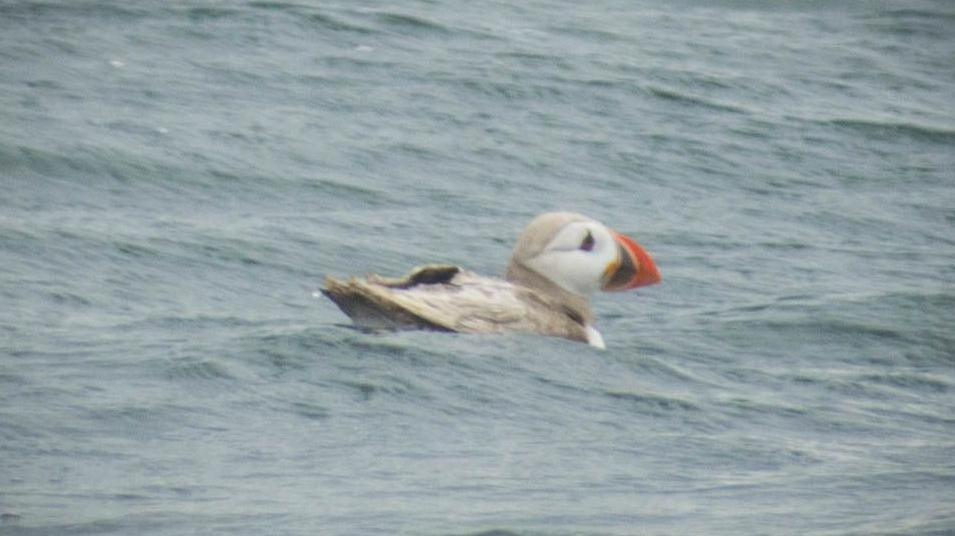
The puffin has lighter coloured feathers, thought to be caused by a genetic condition
"It's great for the island and it's great for Amble too because of all the extra visitors coming to try and get a glimpse of them," he added.

Steven Banks from Puffin Cruises says the sightings are good for Amble with many extra visitors
The lack of pigmentation in the "golden puffin" is likely the cause of a genetic condition called leucism, which causes loss of colouring in the feathers.
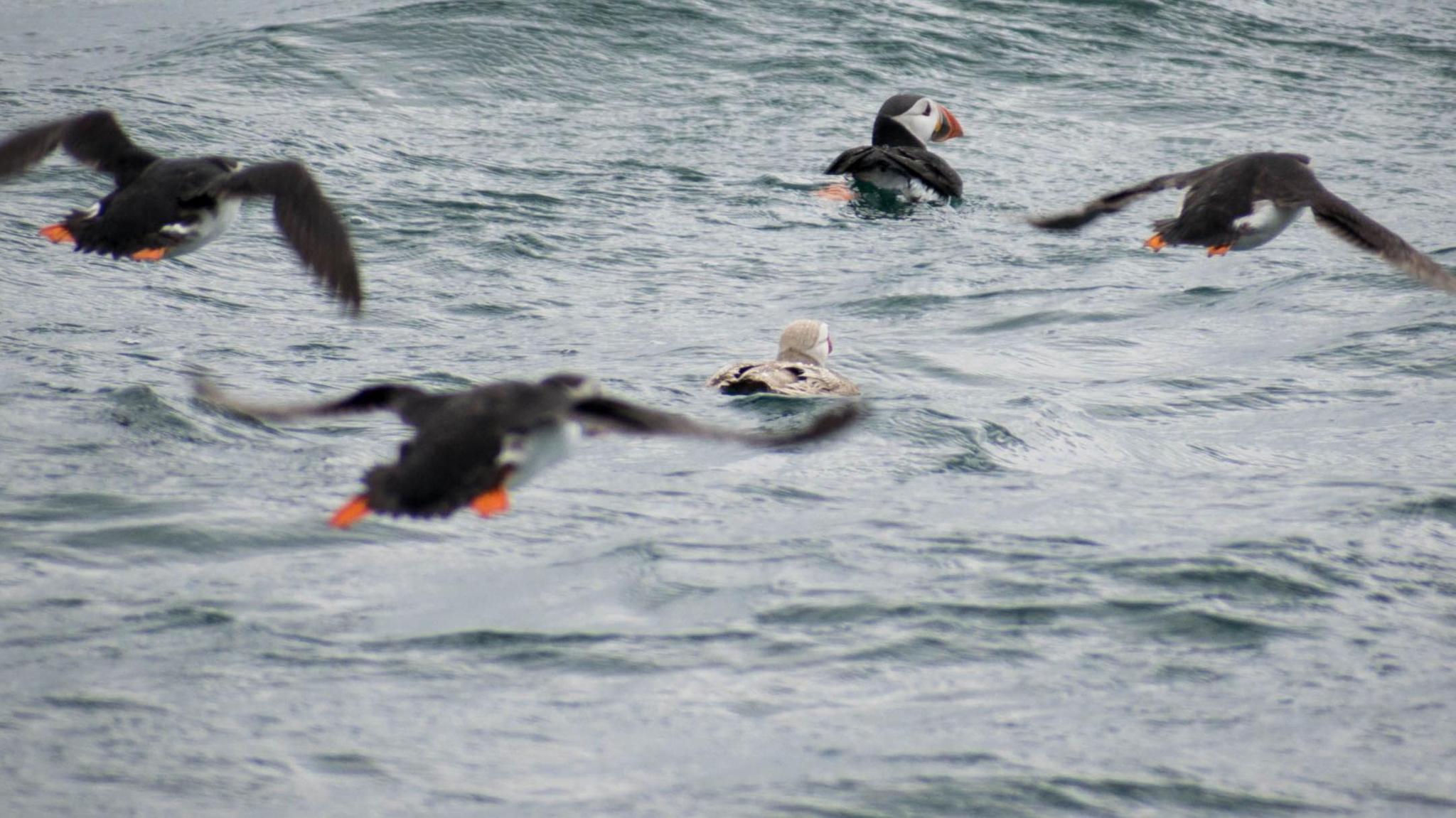
The "golden puffin" stands out from the other puffins because of its lighter coloured feathers
Paul Morrison from Amble, who was the site manager of Coquet island for 24 years and now runs an environmental consultancy, said: "I only saw two of them in all my time on the island and they are really unusual because they really stand out.
"The bridled tern is a separate species, it is unbelievably unusual for it to be seen in Britain.
"Certainly I've never seen one in all my time on Coquet island, that is really a very special sighting."
Follow BBC North East on X (formerly Twitter), external, Facebook, external and Instagram, external. Send your story ideas to northeastandcumbria@bbc.co.uk.
More stories from BBC North East and Cumbria
- Published1 July 2021
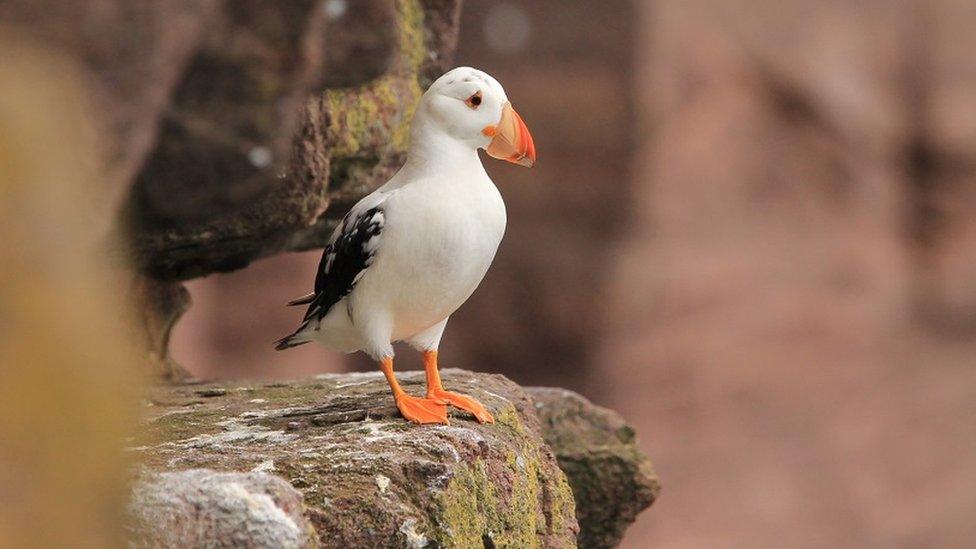
- Published5 June 2024
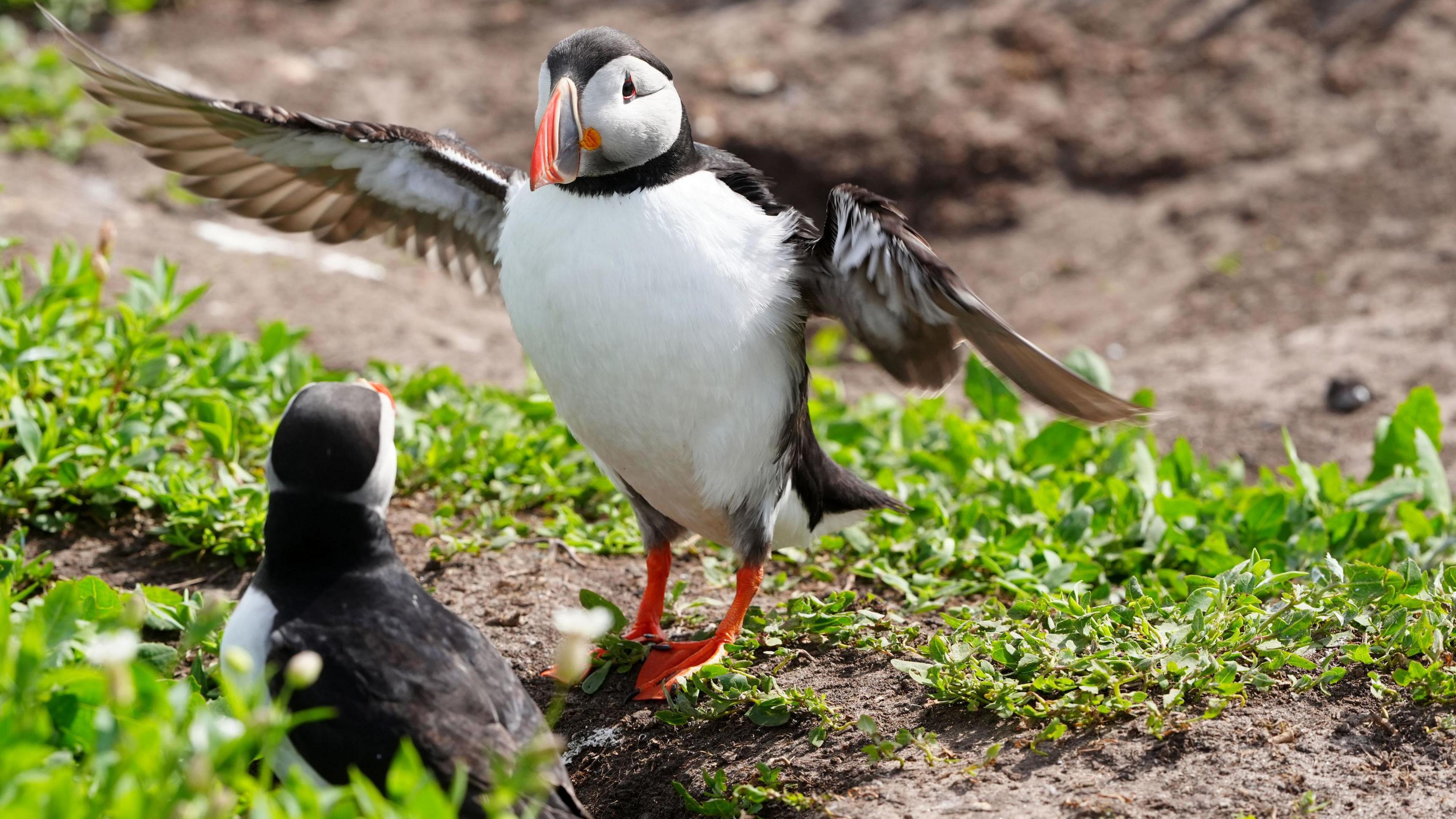
- Published10 November 2021
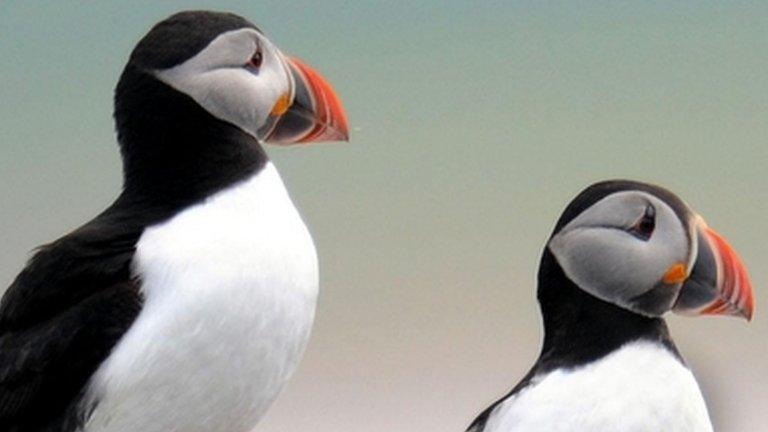
- Published2 May 2023
